- Home
- Mark Chadbourn
World's End Page 11
World's End Read online
Page 11
“Marianne,” he whispered.
She was pale and fragile, her eyes dark and hollow, as if she had gone days without sleep; Church couldn’t bear to look into their depths. Her skin had an opaque quality that seemed to shimmer and for the briefest instant become transparent. Her arms hung limply at her sides, her shoulders slouched from an unseen burden. Church felt an overwhelming wave of despair and longing washing off her, sluicing away the frisson of fear he felt at her terrible appearance.
And all he could remember was that moment when the last dregs of life drained away and the intelligence died in her eyes, leaving him with just an armful of hope and chattering images of promised futures now lost and, worse, the certain knowledge he would never know why everything he ever needed or believed in had been taken away from him.
He thought he might die if he heard the truth, but he asked anyway, in a hoarse voice that didn’t sound like his own: “Just tell me why.”
If she heard, she gave no sign; her blank features still radiated that sense of terrible loss. Church couldn’t bear to look at her; he closed his burning eyes and stifled the sobs that threatened to rack him.
When he did finally look again, she had raised her arms, beckoning.
His breath froze in his throat. Tom’s warning flickered for an instant, then was driven away. He took a step and passed the edge of the stones.
But as he moved forward, Marianne began to recede, still holding her arms in front of her, faster and faster, however quickly he advanced, eerily gliding an inch or two above the ground. And then he was running madly down the slope and Marianne was whisking away from him, growing smaller until she was just a glowing spot on the horizon that eventually winked out.
Heartbroken, Church fell to his knees, his loss as raw as in the days just after her death. Somehow he managed to compose himself enough to trudge back to the stones, but as he passed the spot where she had waited he noticed something unusual. On the ground lay a rose, its petals as black as the night, perfectly formed, with a stem that had been neatly clipped. As he picked it up, he felt a whisper in his head that said Roisin Dubh, and he knew in a way he couldn’t explain that it was the flower’s name; and that it was a gift from Marianne.
Although he couldn’t fathom its meaning, he felt a rush of elation. He tucked the flower secretly into his jacket and made his way back to the dying fire.
chapter five
where the black dog runs
hey woke early with the sun heavy and red on the horizon. A thick dew sparkled on the ground and on their jackets and there was a chill in the air that made their bones ache, but they soon stamped the warmth back into their limbs. As soon as they had properly woken, Church and Ruth realised they felt strangely refreshed; new and clean like they had been reborn; Church could not remember having slept so deeply in the last two years.
“It’s the healing and energising effect of the earth energy,” Tom told them as they made their way back to the car.
“The NHS should get a franchise,” Ruth replied with a relaxed smile. Church was pleased to see her face clear of the anxiety and worry that had transformed her the previous evening.
In the tunnel they stopped to examine the black crust scorching the concrete and were instantly reminded of how close their escape had been. And before they could depart, Church had to scrape the car windows free of a thick layer of ash made tacky by the dew; the air smelled like the aftermath of a house fire.
“I still do not understand how the Fabulous Beast was marshalled in our pursuit,” Tom mused as Church cursed quietly in his labour. “They are supposed to be wildly independent, uncontrollable.”
“Maybe that’s one bit of your lore that’s wrong,” Church said sourly. “A good council Fabulous Beast training course … sit … beg … roll over. They’ll do anything for a treat.”
Tom muttered something under his breath and wandered off to take the air while Church finished the windows.
“Doesn’t he speak funny?” Ruth found a clean part of the wing to perch on. “Like some bad historical novel.”
“He’s a strange fish all round. I still don’t trust him. It feels like he’s just throwing out enough titbits to keep us interested while he works on his own agenda.”
“As long as we’re aware of it.” Ruth closed her eyes and put her head back to feel the sun on her face.
Church was glad of the silence that followed. He could barely contain the emotional upheaval he felt after his encounter with Marianne; it resonated confusingly through every thought. Why was she visiting him-to torment him further or to pass on some message? Was it linked to all the other high strangenesses that had descended on the country? And what was the significance of the Black Rose which was secreted in the inside pocket of his jacket close to his heart? Instinctively, he felt he ought to tell Ruth about it, but there was a niggling part of his mind that forced him to hold back. Maybe later, he promised himself.
Their first aim was to find somewhere to eat. At the A345 they came across a Little Chef surrounded by trees and were the first inside once the doors opened. Over full English breakfasts and tea looking out over the sun-drenched car park, they tried to make some sense of what was happening.
“I still don’t see what we can possibly do,” Ruth said as she dunked her toast into her egg.
“Probably nothing apart from find some way to raise the alarm. But we do have a responsibility to do something.” Still distracted, Church sipped on his tea; he knew exactly what he wanted to do: discovering what the mysterious email woman knew about Marianne was still the driving force. At the moment that dovetailed with their search for more information about the imminent crisis Tom had described, but if he ever had to make a choice between the two, he didn’t know how he would react.
Ruth suddenly glanced down at her hand in surprise. “Look at this: I cut my hand scrambling through the fence last night, and this morning there’s no sign of it. It’s completely healed.”
“Make the most of it,” Tom mumbled grumpily. He seemed preoccupied, constantly glancing around the room.
“Expecting guests?” Church said.
“Just because we survived last night doesn’t mean it’s the end of it.”
“There’s a cheery thought,” Ruth said breezily, but Church could see she was disturbed by it.
“So now we’re on the run,” he said. Tom didn’t answer.
They went to the checkout, but as the waitress totted up their bill the till suddenly started spewing out reams of receipt paper. Her eyes flashed irritation while she attempted to maintain a pleasant smile as she wrestled with the snaking roll. Eventually the register jammed and she tore off the streamer with restrained anger. On it was the same thing printed over and over again:
1OF5
It bore no relation to what she had keyed in. When Church noticed it, he felt strangely uneasy. He was immediately thrown back to his journey to collect Ruth and the odd sequence of coincidences.
Church leaned on the car bonnet in the sun with Ruth’s mobile phone after struggling for ten minutes to find a signal. Laura’s sleepy voice told him he’d woken her.
“It’s Jack Churchill. I’m sorry we didn’t make the meeting with you last night. We got delayed in Wiltshire.”
There was a long pause, then: “It’s Sunday. Mornings have been banned. What’s the matter? The missus thrown you out of bed?”
“I’m sorry.”
“Yeah, yeah.” She yawned. “So what’s the score? You still want to meet?”
“Yes, and soon. We can get up to Bristol by-“
“Don’t worry, I’ll come to you. If You’re in Wiltshire then you might as well head to Salisbury. That’s where it happened. You can take the ghost train with me, see if you get the full Fright Night treatment too. Or maybe I really have done too many drugs.” The line threatened to break up, but then her voice came through clear once more. “-king mobiles! I’ll meet you tomorrow at Poultry Cross in the city centre. 10 a.m. You’ll find
it.”
“What about your work?”
“Yeah, like it matters any more.”
They reached Salisbury just after 10.30 a.m. The March sun was strong enough to catch the historic cathedral town in an unseasonable light, bright and buzzing with tourists through the main shopping area and Market Square. Ruth used her credit card to check them into a hotel in the centre of town, selected by Tom for its olde worlde appeal: a thirteenth century coaching inn, half-timbered in black on white, with hanging eaves, high chimneys and diamond window panes which, from the pavement, made the interior seem mysteriously murky. They managed to get rooms side by side. They were fitted with all mod cons, but the sloping floors and oddly angled ceilings still gave them a time-lost feeling.
With the threat of so much darkness looming on the horizon, they agreed to take a break, from each other and, hopefully, from the stresses of the events sweeping in around them, until early evening. Ruth and Church both felt they needed time to assimilate all that Tom had shown and told them at Stonehenge.
In the sun outside the hotel, amongst the bustle of everyday life, they could easily have pretended nothing had changed. But as they walked away, Tom called out, “Be on your guard.”
For some reason he couldn’t quite explain, Church found himself drawn to the cathedral which stood on the south of the city, an imposing vision of majesterial white stone in acres of greenery bounded by the River Avon. As he stood in The Close looking up at the soaring spire, he had a sudden impression of it as a symbol of all that was under threat. Seven hundred years of British history, built on solid foundations that not even an earthquake could throw down. It had overseen the coming of the Age of Enlightenment, of the establishment of a civilisation based on science, reason and logic. And more than that, it represented the glory of a God who had created that world; a religion which allowed no space for the truth that was slowly being unpeeled before their eyes. The magnitude of what could be swept away dwarfed him.
It was too much. He hurried in through the south-west entrance as if he were seeking sanctuary and walked slowly up the nave to take a seat in the pews. For long minutes, he couldn’t bear to think, instead losing himself in the quiet beauty of the surroundings. Organ music played gently in the background, adding to the air of reverent tranquillity which soothed him a little, and eventually his attention fell upon the altar and its intricately worked cloth. The central image showed a crown of thorns in gold and red surrounding the Holy Grail. There was something about the image which seemed to speak to him, whispering insistently at the back of his head until he became disturbed by the suggestion of a subconscious connection which he couldn’t make. In the end he had to force himself to look away.
Then there was no other choice but to let his mind turn to Marianne, as he knew it would. Carefully, as if he were handling a fragile piece of pottery, he drew out the Roisin Dubh, wondering how he knew what he guessed was the Gaelic, marvelling at how the rose had survived so immaculately. The petals were like velvet, the black so rich it seemed to have numerous depths. He lifted it to his nose, but surprisingly it had no fragrance at all. Was it, as he hoped, a sign from her of their enduring love?
The thought filled him with such a swell of desperate emotion he had to close his eyes, and in that instant he almost prayed. But since Marianne’s death, nothing any religion preached made sense any more; however much he hoped her essence lived on in some kind of afterlife, the mundanity of everyday life had almost convinced him that death was an end. Now he couldn’t even wallow in that existentialist purgatory. Two years of weighing up every option, trying to find some common ground between hope and reality, had left him sick and mentally worn down. He was too tired to have faith. He just wanted to know.
His sense of alienation on the sacred ground drove him to his feet, but as he turned to go he glimpsed someone watching him from across the nave. The figure seemed unreal, oddly proportioned and hazy. It darted behind a pillar when it saw him look, but it left him with a sudden chill, as if its gaze had transmitted a hoarfrost. Suddenly he had to see who it was.
Cautiously, he made his way along the pews to the pillar. His footsteps sounded uncommonly loud, although an elderly couple passed by immersed in their guidebook, oblivious to him. The space behind the pillar was empty, but in the corner of his eye he saw a shimmer away to the right; someone was moving unfeasibly quickly along the south aisle. Church had an impression of a man, yet he was almost mist, as if he were radiating a grey light. In his trail there was a claustrophobic sense of threat.
Get out of here, he told himself. But running away seemed a weak thing to do, and after Marianne’s death he didn’t want to be pathetic again. He moved quickly in pursuit.
He slipped through an exit near the refectory and found himself in the cloisters, a square of wide corridors with low, vaulted ceilings surrounding a brightly sunlit lawned area which only served to make the other legs of the cloisters seem impenetrably shadowed. His first impression was that it was eerily still, as if he had stepped through time into after-hours. There were no tourists, even near the entrance to the Magna Carta exhibition in the Chapter House, and the sound of the organ had mysteriously disappeared. His skin prickled as he watched for any sign of movement. Gradually he became aware of an atmosphere of disquiet lying across the area. A cloying scent of lavender hovered in the air.
Slowly Church left the protection of the door. He hadn’t progressed far when the stillness was broken by a deep, guttural growling that raised the hairs on the back of his neck. He froze, then turned slowly in a circle. Still nothing. It was impossible to see through the sunlight of the square into the darkness beyond.
The growl rang off the stone once more, filled with menace, hinting at some enormous beast. He glanced down one corridor, then another, unable to tell from where it was coming. There was no sign of the shadowy figure either. Slowly he advanced along the north corridor, but with each step the sensation of unease grew more intense until he felt an unbearable urge to get out of that lonely place.
But as he rounded the corner into the east corridor, it was there, waiting for him, halfway along: a black dog, bigger than any he had ever seen before; it was only when it took a step forward on its heavy, sinewy limbs that he realised it was the size of a small pony. And then Church noticed its eyes, red as blood, with an inner light that burned with a cruel, demonic intelligence. A long strand of saliva drooled from its yellow fangs to splatter on the stone flags, where it sizzled like acid. It was so monstrous he knew it was no earthly creature.
The dog growled once more, rumbling menacingly deep in its throat. Then it lowered its head and took a slow step forward. Church knew if he turned it would be on him in a second. He noted the power in its jaws; he would have no protection if they were tearing at his throat. He took a tentative step backwards.
Deep in his head he felt a buzzing like a swarm of flies, sickening in its intensity, and he knew that in some way it was the creature’s alien, terrible thoughts interfering with his own; there was nothing there he could make sense of, just a primal feeling of threat and devouring. His stomach churned at the contact. What is it doing? he thought.
Slowly it moved forwards, each heavy paw echoing as it thudded on the stone. Powerful muscles rippled beneath the sleek black fur. Its eyes ranged across his face with a terrible, malign force, scarlet pools surrounding a circle of black like the drop into the abyss; the buzz of its thoughts crackled louder in his head. And in that moment he knew this was no chance encounter; it wanted him.
Church backed away a little further, but he realised the door was too far away to run. Slowly the muscles on the dog’s back began to pull together as it lowered its enormous head. The deep, rattling growl dropped a notch into its throat. It was preparing to attack.
Church felt the cold wash of fear. He had an instant to decide what to do, but there were no options. Hopelessly, he decided he should turn and run. The dog’s nails clicked loudly on the stone.
This
is it, he thought.
But just as he was about to launch himself, the door into the cloisters crashed open and a guide leading a column of tourists marched in, his voice echoing out with the history of the site. Church was about to yell out for them to flee when he noticed a sudden, subtle change in the atmosphere. Out of the corner of his eye he saw the beast pause on the cusp of its attack, its eyes falling sullenly in the direction of the tourists. Briefly, it seemed to consider whether to continue its assault, but then it closed its jaws with a faint snick and padded away with a heavy step. Church remained frozen, unable to tear his eyes from it. When it was twenty feet from him, it turned its head and surveyed him balefully before losing itself in the shadows.
The column of tourists trooped past him, clicking their cameras, muttering in foreign languages. Church rested back against the stone wall in relief, his heart pounding madly, the stink of the dog all around. “Are you all right?” the guide asked in concern.
Church smiled weakly, but he couldn’t bring himself to reply. He had the sudden feeling that events were closing in around them.
Ruth wandered through the city, staring into shop windows without really seeing, her head swimming with the bizarre experiences that had impacted on her life. She felt completely at odds with herself. Everything she had seen and heard filled her with a feeling of dread for what might lie ahead, yet at the same time she was overcome with a sense of freedom that was remarkably uplifting; the office was just a bad dream; from a distance the career seemed like shackles preventing her living her life. Now she was able to do what her heart told her. At the same time, these feelings ignited a tinge of guilt, as if she was betraying the memory of her father. He had always dreamed of her establishing a great career in law and he had been so happy when she was offered her job. It was all a mess of conflicting emotions and for the first time she felt she didn’t know herself at all.

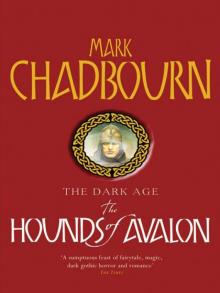 The Hounds of Avalon tda-3
The Hounds of Avalon tda-3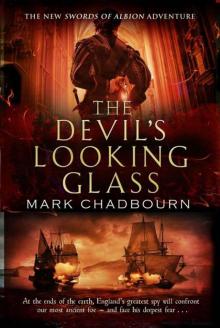 The Devil's Looking-Glass soa-3
The Devil's Looking-Glass soa-3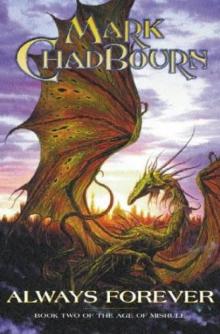 Always Forever taom-3
Always Forever taom-3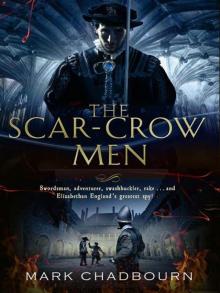 The Scar-Crow Men
The Scar-Crow Men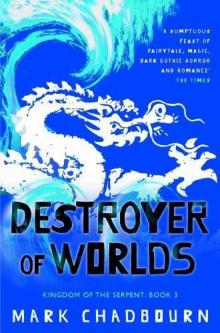 Destroyer of Worlds kots-3
Destroyer of Worlds kots-3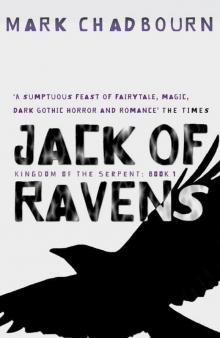 Jack of Ravens kots-1
Jack of Ravens kots-1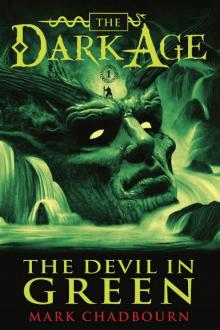 The Devil in Green
The Devil in Green World's End
World's End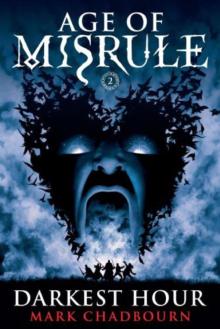 Darkest Hour (Age of Misrule, Book 2)
Darkest Hour (Age of Misrule, Book 2) Destroyer of Worlds
Destroyer of Worlds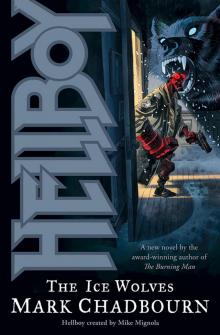 The Ice Wolves
The Ice Wolves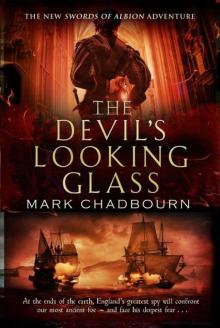 The Devil soa-3
The Devil soa-3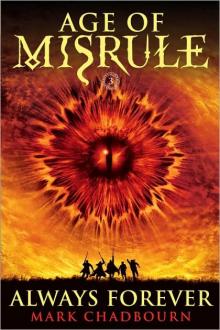 Always Forever
Always Forever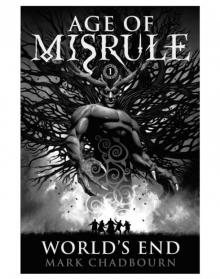 World's End (Age of Misrule, Book 1)
World's End (Age of Misrule, Book 1)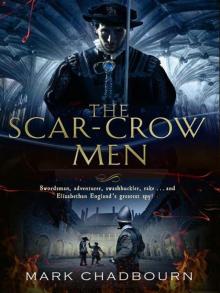 The Scar-Crow Men soa-2
The Scar-Crow Men soa-2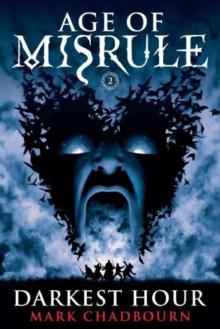 Darkest hour aom-2
Darkest hour aom-2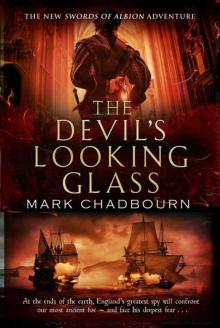 The Devil's Looking-Glass
The Devil's Looking-Glass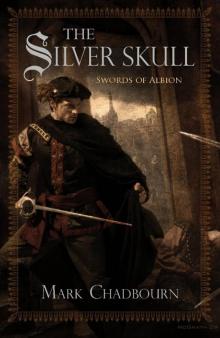 The Silver Skull
The Silver Skull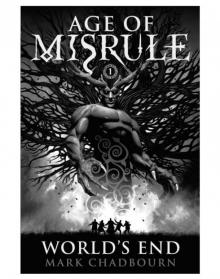 World's end taom-1
World's end taom-1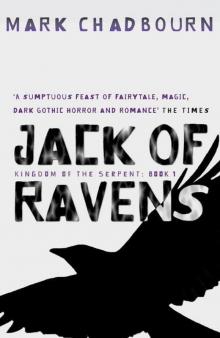 Jack of Ravens
Jack of Ravens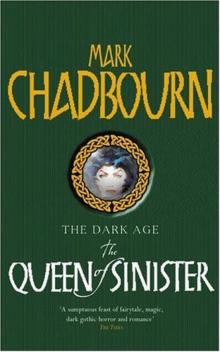 The Queen of Sinister
The Queen of Sinister